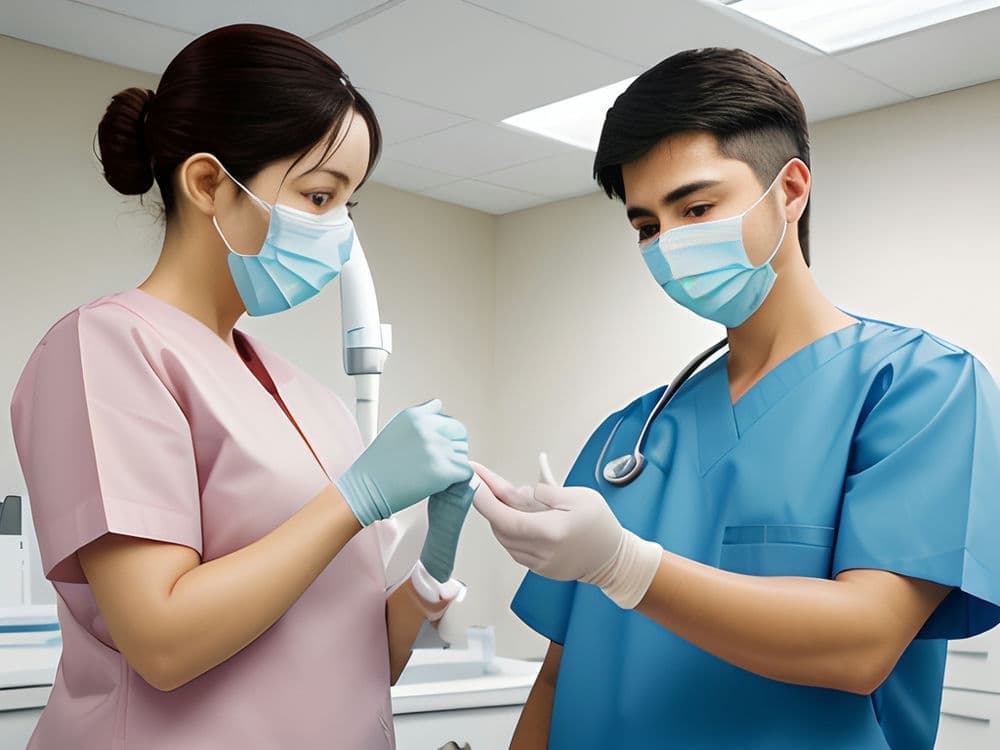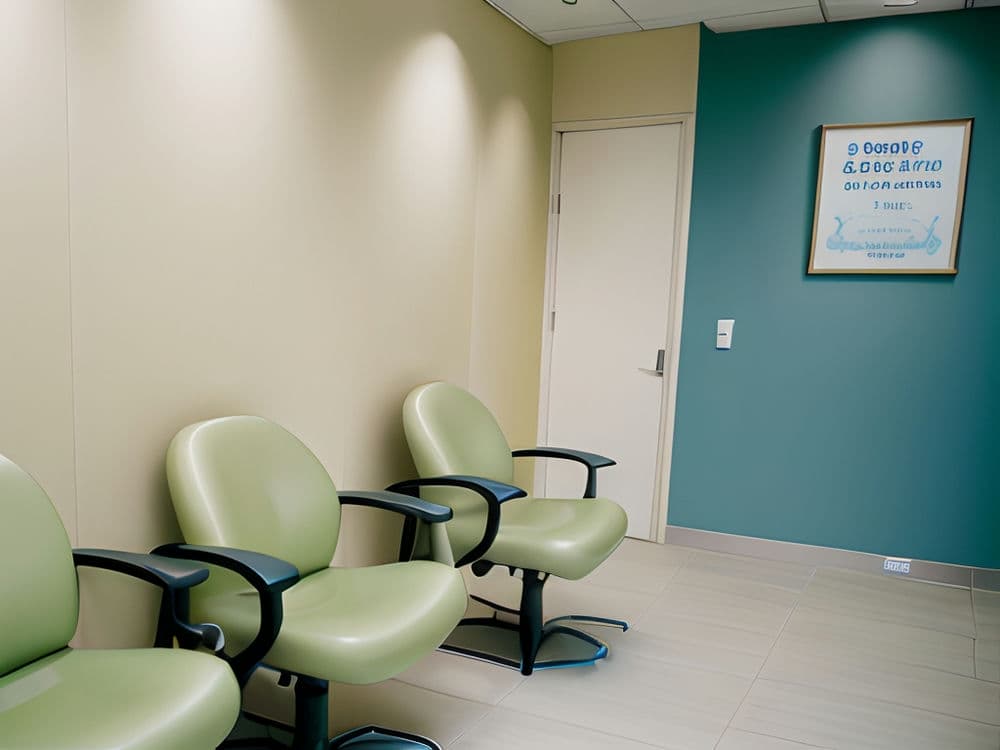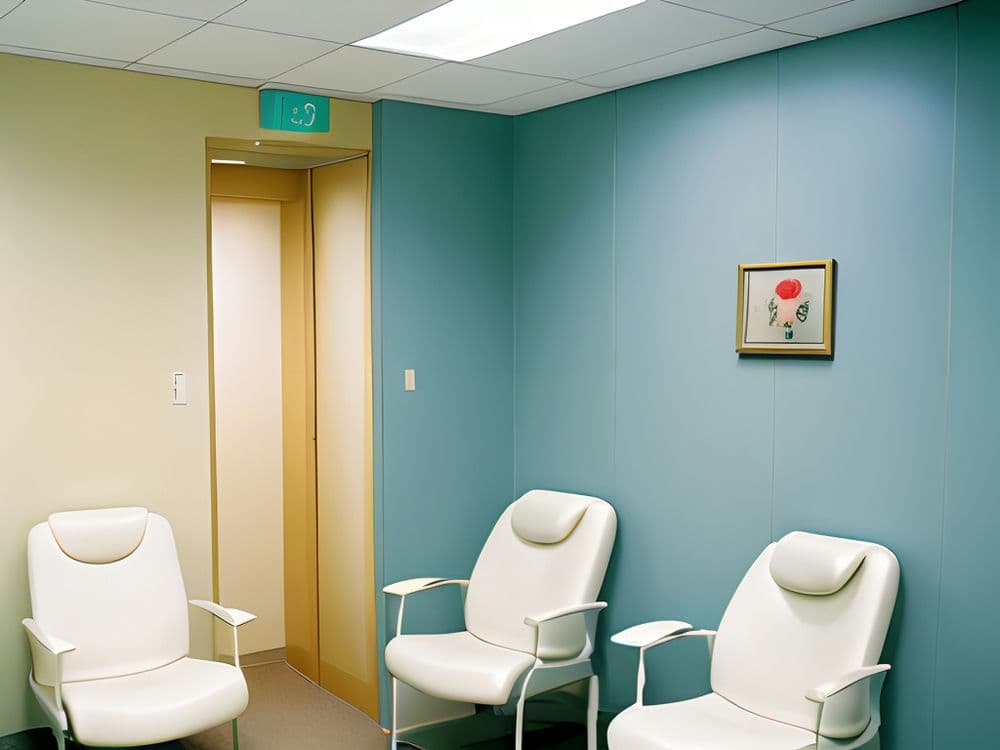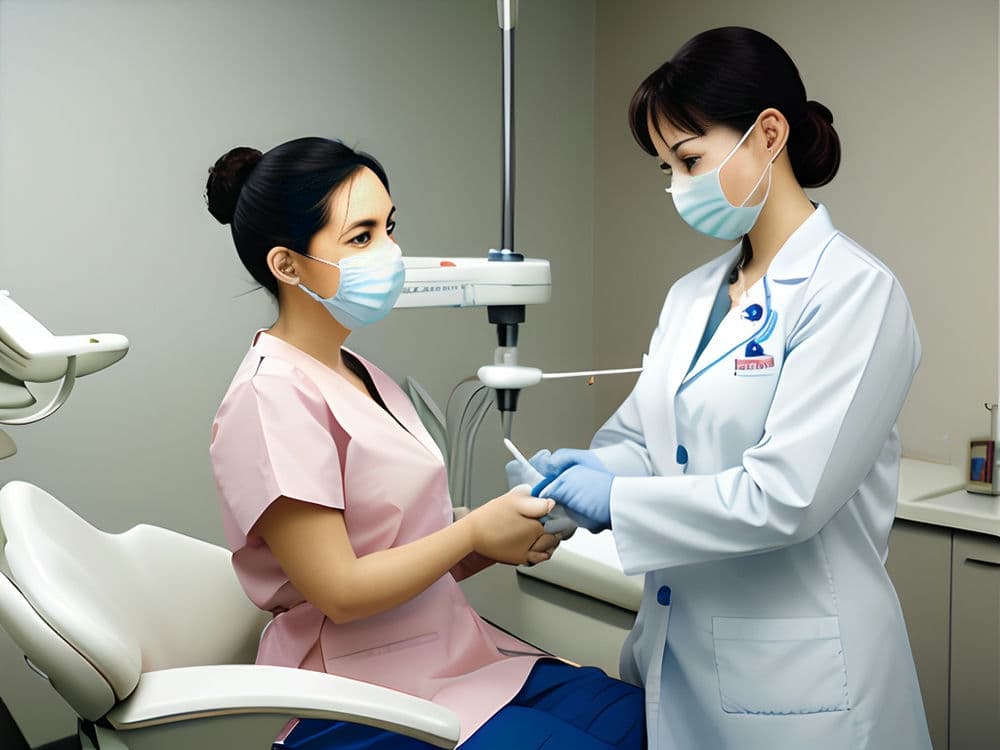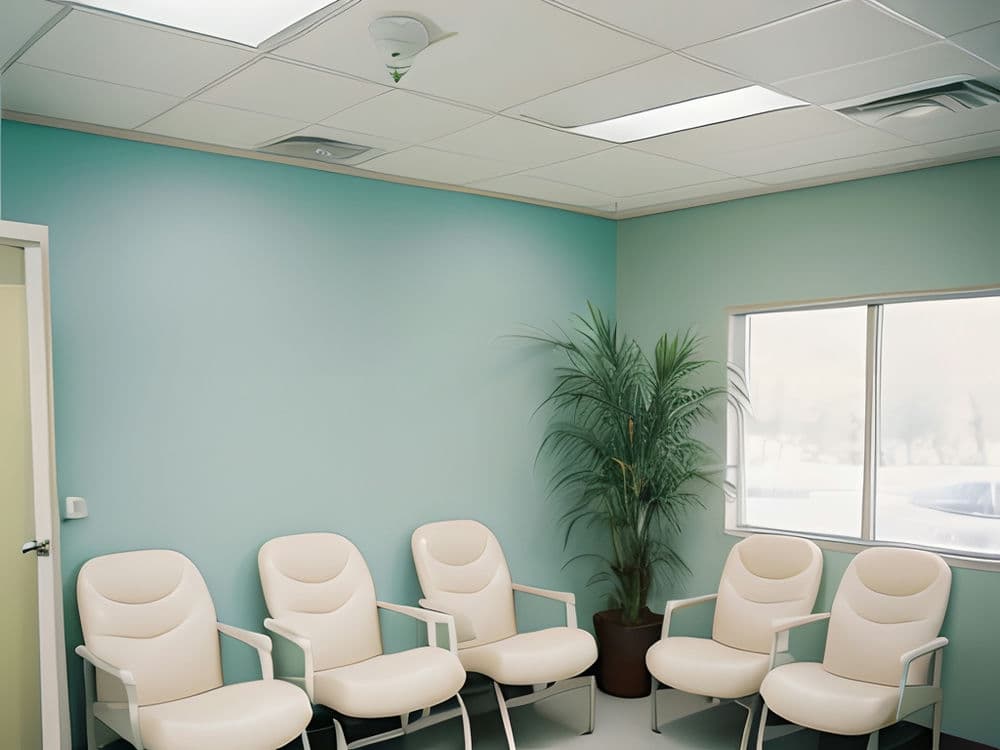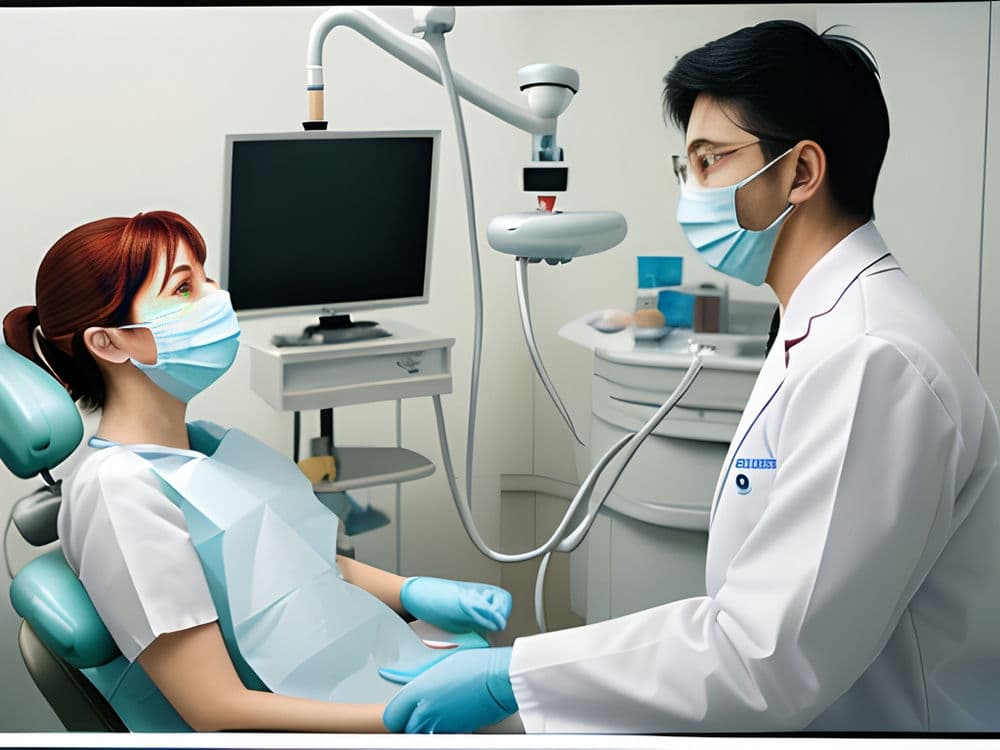In the realm of dental health, the nuanced approach of tailoring communication to individual needs has shown promise in enhancing patient responsiveness and adherence to recommended practices. Where generic reminders might blend into the background of daily information overload, personalized messages stand out as relevant and engaging.
Statistics illustrate this point: Personalized reminders have been linked with improved appointment attendance rates. A study found that when patients received reminders that addressed them by name and referenced their specific upcoming procedures, they were more likely to keep their appointments compared to those who received standard, impersonal notices.
This effect extends beyond mere attendance. The personal touch can influence a range of behaviors critical for oral hygiene maintenance—such as regular brushing and flossing, timely replacement of dental tools like toothbrushes, or adherence to prescribed treatments. When patients perceive that their dentist understands and caters to their unique situation, trust is fortified. This relationship fosters an environment where patients are more receptive to advice and more committed to following through with it.
Moreover, personalized communication often provides education tailored to the patient's own oral health status. By receiving information pertinent to one's conditions—be it gum disease or cavity prevention—the advice becomes not just general good practice but a directive tied closely to personal well-being.
Yet there are challenges in implementing such customized strategies across broader populations due both to logistical constraints and privacy considerations; nonetheless, the potential benefits suggest they're worth pursuing. As technology evolves, so too does the opportunity for dental professionals to refine how they connect with patients—potentially transforming passive recipients of care into active partners in maintaining their dental health.
In conclusion, while scaling up personalized healthcare communications presents hurdles, evidence indicates that doing so could significantly impact patient behavior positively. Embracing this personalized approach may be key in driving better dental health outcomes on a large scale.
The psychology underpinning tailored communication and its effect on adherence is a captivating subject, particularly within the realm of dental health reminders. Personalized messages exert a potent influence because they touch upon fundamental aspects of human behavior and psychological needs.
At the heart of this phenomenon lies the concept of personalization itself, which aligns with our deep-seated desire for recognition and individual attention. When patients receive dental reminders specifically crafted for them, mentioning their name or referencing their last appointment details, it resonates on a more intimate level than generic communications. This personalized approach taps into the psychological principle of social identity theory, where individuals are inclined to engage in behaviors that reinforce their sense of self and belonging.
Moreover, personalized messaging leverages the commitment and consistency heuristic from Cialdini’s principles of persuasion. Once people commit to an action verbally or in writing—such as agreeing to a proposed dental check-up date—they are more likely to follow through due to the desire to appear consistent with their commitments. Personalized reminders serve as both a nudge and an echo of this commitment, bolstering their determination to adhere.
Furthermore, customized communication can activate intrinsic motivation by making recipients feel like they’re not just another number but valued patients whose oral health genuinely matters. When dentists invest time into personalizing messages, it signals care beyond mere professional duty; it indicates a partnership wherein the dentist is actively involved in their patient's well-being journey.
Behavioral science also suggests that personalized reminders may evoke the norm of reciprocity—a feeling among patients that they should reciprocate the special attention they've received by complying with recommendations or attending scheduled appointments.
In conclusion, when dental health professionals employ personalized messaging strategies effectively, they harness powerful psychological mechanisms that inherently boost patient compliance rates. These strategies reflect an understanding that at its core, healthcare is about human connection—and when that connection feels personal and meaningful, positive health outcomes often ensue.
Personalized dental health reminders have revolutionized the way people approach oral hygiene. By targeting individual needs and behaviors, these reminders ensure that each person receives tailored advice and encouragement, which can greatly enhance their dental care routine.
Firstly, personalized reminders help in establishing a consistent oral hygiene schedule. Individuals often overlook or forget their dental routines due to busy lifestyles. However, when a reminder system is in place that adapts to one's personal calendar and habits, it significantly increases the likelihood of maintaining regular brushing and flossing practices.
Moreover, customized messages can address specific concerns such as gum health or cavity prevention. For example, if someone is prone to gingivitis, receiving targeted tips on how to better care for their gums can be particularly beneficial. This bespoke guidance fosters a more effective approach than generic advice because it confronts the unique challenges faced by an individual.
Additionally, personalized reminders may boost motivation by tracking progress and celebrating milestones. Positive reinforcement through congratulatory notifications after reaching certain goals – like a streak of days without missing teeth cleaning – can encourage continued adherence to good oral hygiene practices.
Another advantage lies in the potential reduction of dental costs over time. With improved daily care prompted by these tailored reminders, individuals might experience fewer dental issues requiring professional intervention. This could lead to less frequent visits for treatments like fillings or deep cleanings – saving both time and money.
Finally, incorporating technology into dental care creates opportunities for real-time feedback from dentists. Imagine getting a reminder linked with your dentist's observations from your last check-up; this connection could drastically improve the effectiveness of home care by aligning it with professional assessments.
In conclusion, personalized dental health reminders play an essential role in enhancing oral hygiene outcomes. Through fostering consistency, addressing individual needs, motivating through positive reinforcement, reducing long-term costs, and integrating professional oversight into daily routines - these tailored prompts serve as powerful tools in promoting overall dental well-being.
Maintaining optimal oral health is pivotal for overall well-being, yet many individuals often overlook the importance of tailored dental care instructions. Customized care guidance can significantly enhance a person's oral hygiene practices, leading to discernible improvements in their dental health.
Traditionally, dental professionals provide generic advice that applies broadly to all patients. However, this one-size-fits-all approach does not account for individual differences in lifestyle, genetics, and risk factors for dental diseases. Personalized dental health reminders address this gap by offering specific recommendations aligned with each individual's unique circumstances.
For example, consider the impact on someone who habitually consumes sugary snacks and drinks. A personalized reminder system could encourage them to rinse their mouth with water after every sugary treat or to choose healthier snack alternatives. This customized advice is more likely to resonate and result in positive behavioral changes than general advice about reducing sugar intake.
Furthermore, personalized reminders can help individuals stay on track with their oral hygiene routines. Busy lives can lead to neglecting regular brushing and flossing habits. A reminder system tailored to an individual's schedule can prompt them when it's time to brush or floss, ensuring these critical activities are not forgotten.
The benefits extend beyond routine maintenance; customized care instructions also have the potential to preemptively address issues before they escalate into more serious conditions. For instance, if someone shows early signs of gum disease, a personalized plan might include more frequent cleanings or specific antiseptic rinses to target the problem area.
In conclusion, embracing the concept of personalized dental health reminders has a profound effect on improving oral hygiene. By receiving care instructions crafted for their unique needs and challenges, individuals are empowered to take proactive steps towards maintaining a healthy mouth – an outcome that benefits both the patient and the healthcare system at large through reduced incidences of preventable dental problems.
The concept of individualized communication is particularly impactful in the realm of dental health, where personalized reminders can play a pivotal role in improving patient compliance and outcomes. By examining case examples, we ascertain that custom-tailored messages resonate more deeply with patients, thereby enhancing their engagement with their oral hygiene routines.
Consider the situation of Jane, a busy professional who often neglected her dental appointments due to her hectic schedule. Her dentist's office implemented a system sending personalized text messages reminding her not only of upcoming appointments but also providing tailored advice based on her dental history. These reminders included specific prompts related to issues she was prone to such as gum sensitivity and tartar buildup. As a result, Jane started attending regular check-ups and improved her at-home care regimen.
Another instance involves Michael, an elderly patient with limited mobility who struggled with maintaining consistent oral care. His dental clinic provided him with customized voice message reminders via his home assistant device. The messages gently reminded him about proper brushing techniques and the importance of flossing, considering his susceptibility to gingivitis. This approach helped Michael keep up with his oral hygiene without feeling overwhelmed by generic information.
These cases underscore that when dental health professionals leverage personalized communication strategies—whether through texts, emails, voice messages or other means—they foster a sense of individual attention and care that motivates patients to prioritize their oral health. Personalization proves its effectiveness by making each patient feel uniquely considered; this contributes significantly to better adherence to dental health practices and ultimately improves overall dental well-being.
In conclusion, personalizing communication in the context of dental health can lead to remarkable improvements in patient behavior and outcomes. Case examples like those of Jane and Michael demonstrate how such tailored approaches can positively impact individuals' engagement with their oral care routines. Customized reminders ensure relevant information reaches patients at opportune times, making them more likely to follow through with recommended actions for healthier teeth and gums.
The intersection of technology and healthcare has ushered in personalized interventions to bolster patient outcomes. In the realm of dentistry, this is reflected through tailored dental health reminders, aimed at improving long-term oral hygiene practices.
When individuals receive customized reminders about their dental care routines, it can significantly influence their oral health trajectory. These reminders might prompt actions such as brushing, flossing, or scheduling regular check-ups with a dentist. By targeting the unique needs and habits of each person, these alerts are more effective than generic advice.
For instance, someone prone to gingivitis may get reminders to focus on gum care when brushing or to use specific mouthwash designed for gum protection. This personal touch not only enhances compliance but also makes patients feel cared for on an individual level.
Furthermore, the psychological aspect plays a vital role; personalized messages may foster a sense of accountability and ownership over one's dental wellbeing. Patients are more likely to adhere to routines that they perceive as specifically crafted for them rather than general guidelines that seem less relevant.
The impact on long-term dental health outcomes is profound. With consistent adherence promoted by these personalized nudges, there's a reduction in the incidence of cavities, gum disease, and other oral conditions that could lead to more serious complications if left unchecked.
Moreover, early intervention facilitated by timely reminders can prevent minor issues from escalating into major problems requiring invasive treatments. Thus, it also implies potential cost savings for both patients and healthcare systems by reducing the need for expensive dental procedures in the future.
In conclusion, personalized dental health reminders serve as a bridge between modern technology and enhanced patient care. They empower individuals to take control of their oral hygiene which reverberates positively through their lifelong dental health outcomes. As we continue to embrace digital tools in healthcare delivery, such innovative approaches will become increasingly pivotal in promoting overall wellness.
In the realm of dental health, the advent of personalized reminders has ushered in a new era of preventive care. Research conducted on this subject suggests a noteworthy link between tailored reminder systems and a decrease in dental problems among patients.
To understand this correlation, it is essential to consider how dental issues typically arise. Neglect and poor oral hygiene practices are often at the core, leading to conditions such as cavities, gum disease, and tooth decay. These problems can escalate if left unchecked, resulting in pain, discomfort, and even tooth loss.
Personalized reminders serve as a digital nudge towards better oral hygiene habits. By using data on an individual's dental history and behaviors, these reminders can alert them when it's time for their next brushing or flossing session or remind them about upcoming appointments with their dentist. The customization aspect ensures that the message resonates more personally with the recipient, making it more likely that they will heed the advice.
The research findings indicate that when people receive these personalized prompts, they tend to maintain regular dental care routines more diligently. This heightened level of attention to one's oral health naturally leads to fewer instances of dental issues over time – an outcome that underscores the effectiveness of such interventions.
Furthermore, by reducing the incidence of dental problems through proactive measures like personalized reminders, there is a downstream effect on healthcare costs. Fewer dental issues translate into less need for treatments such as fillings or extractions – procedures that can be costly for both individuals and insurance systems alike.
In conclusion, incorporating personalized reminders into daily life appears to create significant positive impacts on oral health maintenance. The evidence suggests not only do these timely cues help prevent common dental ailments by prompting individuals towards better hygiene habits but also contribute to broader healthcare savings through decreased necessity for clinical interventions.
While this essay establishes a basic understanding of how personalized reminders might influence dental health outcomes based on existing research findings up until 2023, ongoing studies are sure to provide deeper insights into optimizing such digital tools for maximum benefit across diverse populations.
In the evolving realm of healthcare, personalized dental health reminders stand as a beacon of proactive intervention. These tailored notifications serve as nudges towards maintaining oral hygiene, potentially mitigating the need for complex and costly treatments down the line.
Imagine a scenario where your smartphone buzzes with a gentle alert: "Time to brush your teeth!" or "Don't forget to floss tonight!" These simple, timely prompts can reinforce good habits that could slip through the cracks in our busy lives. By adhering to these regular reminders, patients are more likely to keep their teeth and gums in prime condition, sidestepping preventable issues like cavities, gingivitis, or periodontal disease.
Such preventative measures don't just benefit individual smiles—they ripple outward, promising financial relief for the broader healthcare system. When people avoid oral diseases through consistent care, they reduce their risk of needing fillings, root canals, extractions, or even more extensive procedures that come with hefty price tags. This reduction in demand for intensive dental services could lead to significant savings for both insurance providers and public health entities burdened by high treatment costs.
Moreover, poor dental health has been linked to various systemic conditions such as heart disease and diabetes. By keeping oral problems at bay with personalized reminders, we may witness a decline in these associated health complications—a win for overall well-being and additional strain taken off medical resources.
The implementation of technology-driven dental reminders is an investment in prevention rather than cure. As individuals become empowered to take charge of their dental care routine with these customized alerts, they contribute not only to their own longevity but also pave the way for a more sustainable healthcare ecosystem—one where prevention reigns supreme over remediation.
By embracing this shift towards personalized care coordination aided by digital tools, both patients and healthcare systems stand on the brink of reaping substantial long-term cost savings. It's an elegant solution that leverages modern connectivity for timeless benefits—healthier populations and conserved resources poised to face future challenges head-on.
When it comes to enhancing dental hygiene practices, personalized reminders have emerged as a potent tool. By tailoring messages directly to individuals, these reminders can significantly improve the likelihood of patients adhering to their dental care routines. However, implementing such customized prompts is not without its challenges and considerations.
Firstly, privacy concerns stand at the forefront. Personalized communication necessitates access to sensitive patient data, which must be meticulously protected to prevent breaches that could erode trust and invite legal repercussions. Patients need assurance that their personal information will remain confidential and secure.
Another obstacle is the customization complexity inherent in creating truly individualized messages. Each patient's dental health status, habits, preferences, and even motivational triggers differ vastly; thus crafting reminders that resonate on a personal level demands sophisticated algorithms or manual effort which can be resource-intensive.
Moreover, there is the issue of message fatigue. Receiving too many notifications can desensitize patients over time, leading them to ignore important reminders. Therefore striking a delicate balance between frequency and impact is crucial for maintaining engagement without overwhelming or annoying recipients.
Accessibility also poses an important consideration. Not all patients may have equal access to technology needed for receiving digital reminders (e.g., smartphones). Solutions must be inclusive and consider alternative methods like traditional mail or voice calls for those less tech-savvy or without internet connectivity.
Furthermore, evaluating the effectiveness of personalized reminders presents methodological challenges. Measuring actual behavior change requires long-term observation and may be confounded by external factors unrelated to the reminder system itself (such as changes in lifestyle or overall health).
Lastly, cultural sensitivity is essential when crafting messages; what motivates one demographic might not work for another due to diverse cultural norms around health communication.
In conclusion, while personalized dental health reminders hold great potential in promoting better oral care behaviors, effectively implementing them requires careful navigation through various challenges including privacy protection, message customization intricacy, avoidance of notification overload, accessibility issues, accurate effectiveness assessment methods and cultural considerations. Addressing these facets thoughtfully can help maximize the positive impact such systems offer in improving dental health outcomes.
In an age where technology pervades every facet of our lives, the advent of personalized dental health reminders signifies a leap forward in healthcare convenience. These reminders, typically sent through mobile apps or emails, are tailored to individuals based on their dental history and personal habits. While this service presents undeniable benefits for oral health management, it also raises valid concerns regarding privacy and data security.
The collection and utilization of personal information is at the core of these reminders. To tailor advice effectively, systems must access sensitive details like past dental procedures, hygiene habits, appointment schedules, and even payment information. This data aggregation can paint a comprehensive picture of one's health profile – a trove potentially attractive to unauthorized parties.
Privacy issues emerge when considering how securely this data is stored and transmitted. Inadequate encryption or lax protocols can lead to breaches where private information might be exposed or misused. Even more troubling is the possibility of companies exploiting this data commercially without explicit consent from users.
Moreover, there’s apprehension about the extent to which these services monitor user behavior. The frequency of brushing teeth or flossing may be beneficial for reminder customization but could be perceived as intrusive surveillance by some individuals. It is crucial that developers strike a delicate balance between helpfulness and respect for user privacy.
To mitigate risks, stringent regulations must govern how personal data is handled within these systems. Health Insurance Portability and Accountability Act (HIPAA) compliance is essential in the U.S., yet global standardization remains elusive. Furthermore, transparency in terms of what data is collected and how it's used should be non-negotiable; users have the right to understand their own digital footprints.
In conclusion, while personalized dental health reminders can significantly contribute to improved oral hygiene practices, they come with a responsibility to protect user privacy fiercely. Ensuring robust security measures are in place and maintaining transparent communication with users will help alleviate concerns and foster trust in such technological innovations.
Addressing the digital divide that may limit access for some patients is a critical aspect when considering the impact of personalized dental health reminders. In an era where technology plays a significant role in healthcare, it's essential to ensure that all individuals have equal opportunities to benefit from digital innovations.
Personalized dental health reminders typically involve the use of smartphones, apps, or other internet-enabled devices to prompt patients about their dental care routines, appointments, and provide educational content. However, not everyone has ready access to these technologies due to various factors such as socioeconomic status, geographic location, age, or disability. This gap in access is what constitutes the digital divide.
When only certain portions of the population are able to receive these digital nudges towards better oral hygiene practices and timely dental care, there arises an inequality in healthcare delivery and outcomes. The benefits of prevention and early intervention offered by these technologies are thus unequally distributed.
To combat this divide, it becomes imperative for public health initiatives and dental professionals to develop inclusive strategies that can reach broader audiences. Options could include traditional methods like voice calls or text messages which might be more accessible for those without advanced devices or reliable internet service. Moreover, community-based programs could provide shared resources for accessing online information or applications related to dental health.
Furthermore, partnerships with local libraries or community centers can equip these venues with tools necessary for individuals who lack personal internet access at home. Training programs aimed at enhancing digital literacy can empower people from various backgrounds to take advantage of technological aids in managing their oral health.
In summary, while personalized dental health reminders hold great promise for improving patient outcomes and engagement, attentiveness towards bridging the digital divide is crucial. It's important that innovations in dentistry do not leave behind those less privileged but instead become a lever for greater equity in oral healthcare accessibility and quality across all segments of society.
In the burgeoning field of dentistry, personalized dental care practices are gaining momentum, tailoring interventions and communications to individual patient needs and preferences. This essay will explore the impact of personalized dental health reminders as a component of these future directions.
The integration of digital technologies into dental practice management has opened new avenues for enhancing patient engagement and adherence to prescribed oral hygiene regimens. Personalized reminders, facilitated through smart devices and applications, stand at the forefront of this revolution. By leveraging data analytics and artificial intelligence, these reminders can be customized to address each patient's unique risk factors, lifestyle habits, and treatment schedules.
Consider the scenario where a dental care system sends automated text messages or app notifications reminding patients about their upcoming appointments, medication timings, or even daily brushing and flossing routines. These reminders could be timed based on when a person is most likely to forget such tasks or when they would be most receptive. The potential for increased compliance with dental care plans is significant.
Research suggests that tailored communication improves patient outcomes by fostering a sense of ownership over one’s health decisions. When people receive reminders that consider their personal schedule constraints or motivational triggers, they feel understood and supported by their healthcare providers. This relational dynamic not only strengthens trust but also encourages more consistent adherence to preventative measures.
Moreover, incorporating feedback loops within these reminder systems allows for continuous improvement of the intervention strategies. Patients can report back on their progress or challenges faced in real-time; this information can then inform further personalization of content and timing for subsequent reminders.
In conclusion, as we venture deeper into the era of personalized medicine, dental care practices must adapt by adopting tools like personalized health reminders. These developments promise not only to enhance patient experience but also to improve clinical outcomes by ensuring that individuals remain engaged with their oral health maintenance between office visits - an essential step towards healthier populations and more efficient healthcare delivery systems in the future.
Navigating the ever-evolving landscape of dental health care, it's exhilarating to ponder the innovations on the horizon poised to revolutionize personalized dental hygiene. As we edge closer to a future where technology seamlessly integrates into every facet of our lives, dental health is no exception.
Imagine waking up each morning to a customized oral health report generated by your smart toothbrush – a device equipped with sensors that monitors brushing technique, pressure, and coverage. But let's not just stop there; envision this intelligent gadget also analyzing saliva samples for markers indicating early signs of decay or gum disease well before traditional symptoms manifest.
Artificial intelligence (AI) plays a pivotal role in this futuristic scenario. It could learn individual patterns and predict potential issues based on diet, genetics, and previous dental history. This AI-driven approach ensures that reminders for check-ups or cleanings are not merely calendar-based but dynamically adjusted according to real-time data and risk assessment.
Furthermore, advancements in 3D printing might soon allow us to print custom-fit dental devices at home. From night guards tailored perfectly to mitigate bruxism (teeth grinding) to temporary crowns while waiting for permanent ones – all potentially available at the touch of a button.
We're also glimpsing the possibility of nanotechnology in dentistry, which could lead to self-repairing teeth materials or targeted drug delivery systems that fight bacteria at the microscopic level without affecting other areas of the mouth. Imagine tiny robots cleaning those hard-to-reach places between teeth or repairing minor chips and cracks autonomously.
Tele-dentistry is another frontier expanding rapidly; it bridges distances by connecting patients with dental professionals via video calls for consultations and follow-ups. This not only saves time but greatly increases access to care for individuals living in remote locations or those with mobility challenges.
And what about gamification? Dental care apps that turn daily brushing into an engaging challenge can foster better habits among children and adults alike. By earning rewards for maintaining streaks of good oral hygiene practices, users get nudified towards healthier routines while enjoying the process.
In conclusion, as we stand on the cusp of these technological marvels becoming reality, one thing remains clear: personalized dental health care is shifting towards more proactive and preventive paradigms. These innovations promise a world where everyone has access to tailor-made oral care advice and treatments – ensuring brighter smiles all around without relying solely on biannual dentist visits as our grandparents did. The horizon looks promising indeed for those eager to embrace these cutting-edge tools designed for optimizing personal wellness through smarter, more responsive dental health management.
In the ever-evolving landscape of dentistry, patient engagement remains a cornerstone for ensuring successful health outcomes. As we peer into the horizon of healthcare trends, personalized dental health reminders are poised to revolutionize how patients interact with their dental care regimes.
Traditionally, dental appointments and follow-up practices have been a one-size-fits-all reminder system. However, with advancements in technology and data analytics, it's predicted that strategies will shift towards more tailored communication. This customization not only respects individual preferences but also aligns with specific treatment plans and lifestyle choices.
The integration of AI-driven platforms is anticipated to be at the forefront of this change. These innovative systems can analyze patient data to predict optimal times for dental check-ups or even alert individuals about potential oral health issues before they escalate. Such proactive engagement fosters a sense of partnership between dentist and patient, emphasizing prevention over intervention.
Furthermore, mobile applications are expected to become increasingly sophisticated, offering interactive features that encourage users to maintain good oral hygiene habits daily. These apps could track brushing duration and technique, remind patients to floss or use mouthwash, and provide educational content on demand – all personalized based on user behavior and needs.
Social media too plays a pivotal role as practices leverage these platforms for targeted messaging and community building around oral health topics. By creating engaging content that resonates with their audience's interests and concerns, dentists can establish ongoing dialogue that keeps patients informed and motivated.
Lastly, gamification elements are likely to surface in patient engagement strategies within dentistry. Reward systems based on maintaining streaks of good oral hygiene habits or achieving milestones in treatment progress can significantly boost motivation levels among patients of all ages.
In conclusion, as personalization becomes the heartbeat of patient engagement in dentistry, we can expect an uptick in compliance rates and overall satisfaction. The future looks bright with personalized reminders leading the charge towards more informed, empowered dental communities.
In the realm of dental health, the shift towards personalized care is a pivotal advancement. It acknowledges that each individual has unique oral hygiene needs and responds to treatments differently. Personalized reminders serve as a bespoke navigational tool, guiding patients through their dental routines with precision.
When dentists harness data from patient histories and tailor communications, they not only foster stronger dentist-patient relationships but also enhance compliance with preventive practices. This approach makes it possible for individuals to receive timely prompts specific to their circumstances – whether it be reminders for brushing or flossing more effectively, scheduling regular check-ups, or even managing chronic conditions like gum disease.
Moreover, personalized reminders can adapt over time. As a person's dental health evolves, so too does the nature of their reminders. This dynamic system ensures ongoing relevance and effectiveness in promoting good oral care habits. Patients are less likely to view these custom-tailored alerts as intrusive and more likely as valuable aids in maintaining their dental health.
In essence, personalization in dental care transforms passive patients into active participants in their own well-being. The benefits extend beyond just improved oral health; there's potential for reduced healthcare costs due to decreased need for invasive procedures stemming from preventable conditions.
Ultimately, the movement towards personalized dental care is about delivering more than generic advice—it's about providing actionable guidance that fits seamlessly into an individual's lifestyle and preferences. By doing so, we pave the way for healthier smiles and better overall quality of life for all patients involved.
The emergence of personalized dental health reminders represents a significant shift in patient care within the dental industry. As we embrace this change, it’s crucial for dental practices to adapt strategically to maintain relevance and improve patient outcomes.
Firstly, practices must integrate advanced software solutions capable of collecting and analyzing patient data effectively. Embracing technologies like artificial intelligence can help tailor reminders and advice specifically suited to each individual's oral hygiene habits and risk factors.
Additionally, staff training is paramount. Dental teams should become proficient in using these new tools to maximize their potential benefits. By understanding how to leverage personalized data, they can enhance communication with patients, making interactions more meaningful and actionable.
Engagement strategies also need reevaluation. Practices should focus on creating a seamless experience that connects in-office visits with at-home care through digital channels like apps or messaging services. Personalized reminders serve not just as prompts for action but also as educational touchpoints reinforcing the importance of consistent oral health routines.
Another adaptation involves refining privacy protocols. With increased data collection comes the responsibility of safeguarding sensitive information. Patients must trust that their personal details are secure; hence, robust cybersecurity measures are imperative.
Lastly, feedback loops can drive continuous improvement in delivering personalized care. Soliciting patient input on the usefulness of reminders helps fine-tune their effectiveness and ensures that the practice’s approach remains patient-centric and responsive to individual needs.
In conclusion, by adopting cutting-edge technology, investing in staff education, enhancing engagement methods, reinforcing privacy protections, and establishing feedback mechanisms, dental practices can successfully navigate this paradigm shift towards personalized dental health reminders—ultimately fostering stronger dentist-patient relationships and promoting better oral health outcomes.
